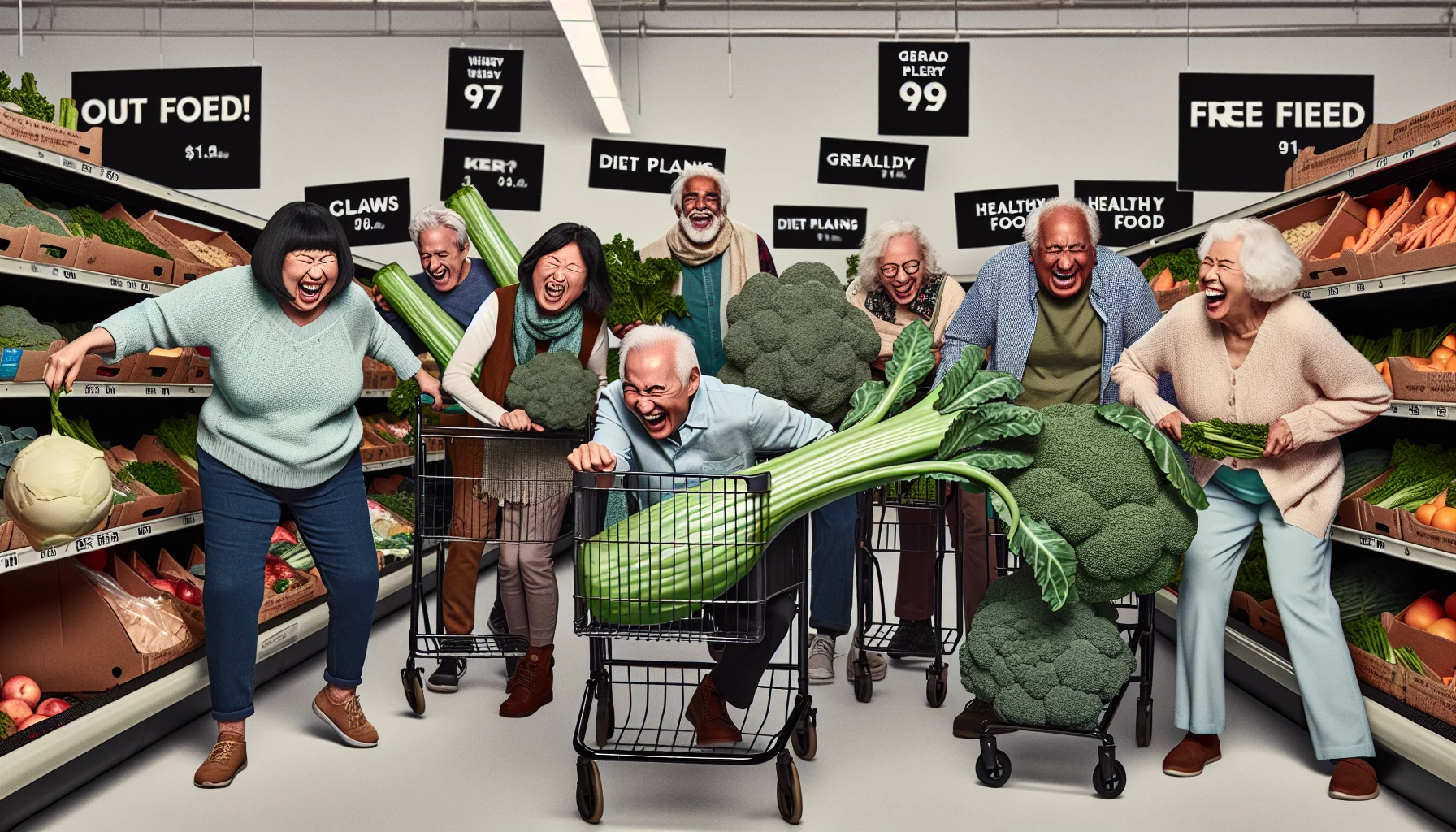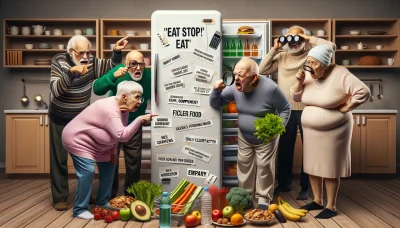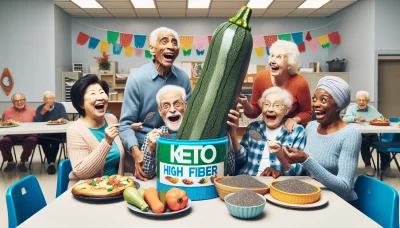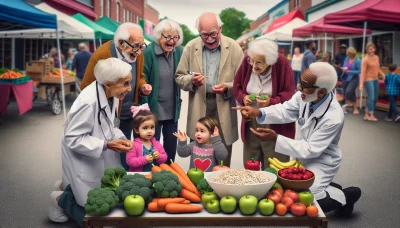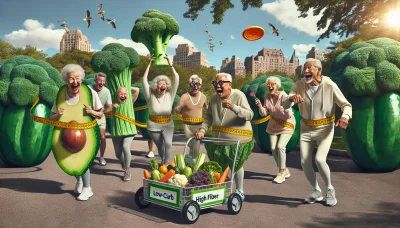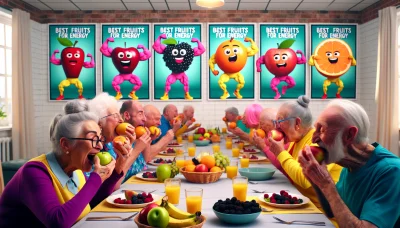Free grocery for seniors Quiz
Test Your Knowledge
Question of
Understanding Free Grocery Programs for Seniors
Eligibility Criteria for Free Grocery Assistance
Age and Income Requirements: To qualify for free grocery programs, seniors typically need to meet certain age and income criteria. These requirements can vary by program but generally aim to assist those in financial need.
Disability and Special Needs Considerations: Additional considerations may be given to seniors with disabilities or special dietary needs, ensuring they receive appropriate food assistance.
How to Apply for Free Grocery Programs
Application Process Overview: Applying for free grocery assistance usually involves filling out an application form and submitting it to the relevant organization. This process may vary depending on the specific program and location.
Necessary Documentation and Verification: Applicants may need to provide documentation verifying their age, income, and residency. This could include government-issued ID, income statements, and utility bills.
Types of Food Provided in Senior Grocery Programs
Nutritional Value and Diet Considerations: Senior grocery programs often focus on providing foods that are nutritious and cater to the dietary needs of older adults. This includes low-sodium, low-sugar, and high-fiber options.
Fresh Produce vs. Non-Perishable Items: Many programs offer a mix of fresh produce and non-perishable items. Fresh produce ensures seniors have access to fruits and vegetables, while non-perishables provide longer shelf life and convenience.
Navigating Local Resources for Senior Nutrition
-
Community-Based Food Banks and Pantries
- Location and Operating Hours
- Registration and Food Selection Process
-
Government-Funded Food Assistance Programs
- Supplemental Nutrition Assistance Program (SNAP) Benefits
- Senior Farmers' Market Nutrition Program (SFMNP)
-
Volunteer Delivery Services for Homebound Seniors
- How to Sign Up for Delivery Services
- Safety Protocols and Contactless Delivery Options
Healthy Eating Habits for Aging Adults
Importance of Balanced Diets for Seniors
- Preventing Malnutrition and Health Complications
- Enhancing Immune Function and Energy Levels
Recommended Foods and Nutrients for Seniors
- High Fiber Foods and Digestive Health
- Calcium-Rich Foods for Bone Density
Overcoming Common Dietary Challenges in Seniors
- Solutions for Chewing and Swallowing Difficulties
- Adapted Meals for Specific Health Conditions
Special Diets and Nutritional Needs for Seniors
-
Heart-Healthy Diets to Manage Blood Pressure and Cholesterol
- Low Sodium Food Choices
- Incorporating Omega-3 Fatty Acids into Meals
-
Diabetic-Friendly Meal Planning for Seniors
- Carbohydrate Counting and Blood Sugar Control
- Snack Ideas to Maintain Glycemic Balance
-
Dietary Adjustments for Seniors with Kidney Issues
- Low Potassium Food Selections
- Protein Intake Management
Cooking and Meal Preparation for Seniors on a Budget
Simple and Nutritious Recipes for One or Two
Discover easy-to-make recipes that are both healthy and delicious, perfect for solo diners or couples. These meals are designed to provide essential nutrients without requiring extensive prep time or cooking skills.
Time-Saving Cooking Techniques
Learn how to cut down on cooking time with efficient techniques that don't sacrifice flavor or nutrition. From one-pan meals to pressure cooking, these methods are ideal for seniors looking to spend less time in the kitchen.
Budget-Friendly Ingredient Swaps
Find out how to substitute expensive ingredients with more affordable options that still deliver on taste and nutritional value. These swaps can help stretch your grocery budget further while maintaining a balanced diet.
Tips for Reducing Food Waste in Senior Households
Proper Food Storage Solutions
Maximize the shelf life of your groceries with effective storage techniques. By storing foods properly, you can prevent spoilage and reduce the amount of food that goes to waste.
Creative Uses for Leftovers to Maximize Value
Turn your leftovers into new and exciting meals with creative recipes designed to repurpose food. These ideas not only save money but also add variety to your diet without the need for additional ingredients.
Utilizing Technology for Grocery Shopping and Meal Planning
Online Shopping and Delivery Services
Explore the convenience of online grocery shopping and delivery services. These tools can save time and energy by bringing your shopping list directly to your doorstep.
Meal Planning Apps Tailored to Senior Diets
Take advantage of meal planning apps that cater to senior nutritional needs. These apps can help streamline the meal preparation process by providing recipe suggestions and grocery lists tailored to your dietary requirements.
Staying Informed About Nutritional Trends and Research
Keeping Up with Dietary Guidelines and Recommendations
- Governmental Health Agencies Updates
- Accessing Trustworthy Nutritional Information Online
The Role of Supplements in Senior Diets
- Identifying When Supplements Are Necessary
- Risks and Benefits of Common Dietary Supplements
Community Education Programs on Senior Nutrition
- Workshops and Seminars on Healthy Eating
- Support Groups for Sharing Recipes and Tips
